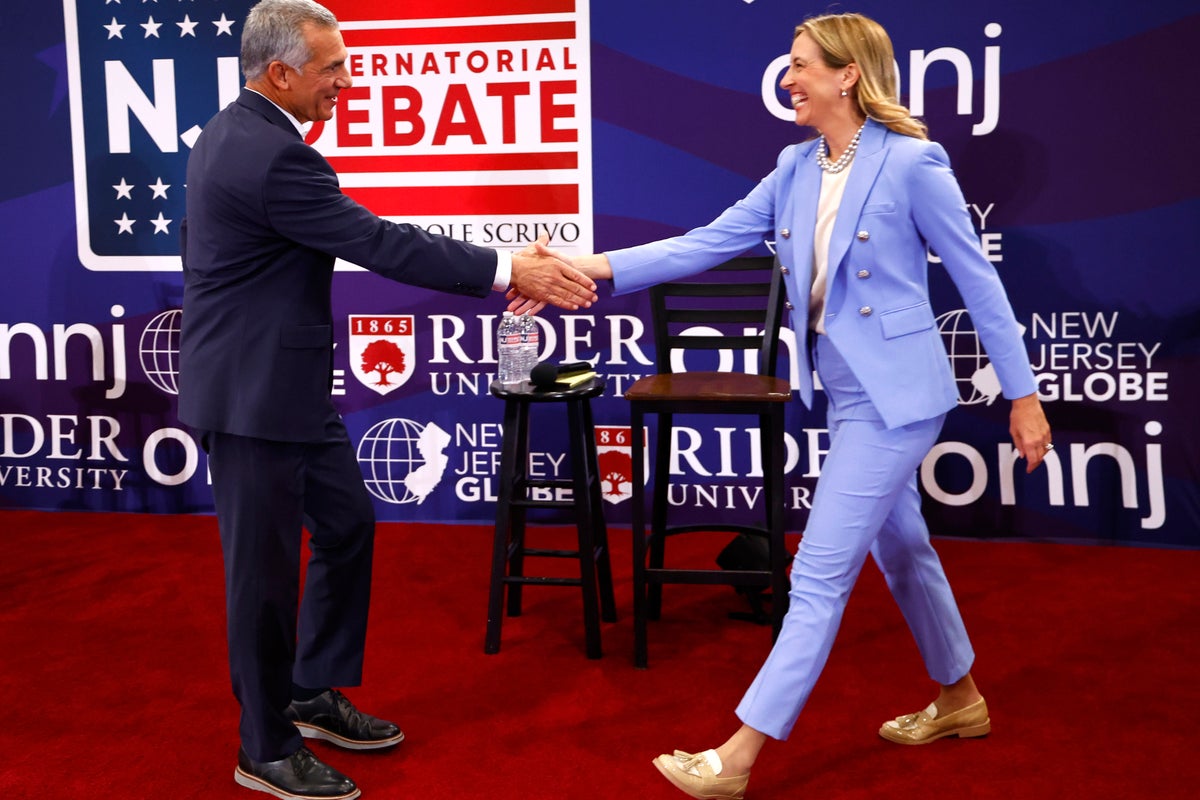
The government shutdown is now entering its first full week. So far, neither Democrats nor Republicans look any closer to a deal.
Democratic House Minority Leader Hakeem Jeffries threw down a gauntlet and challenged House Speaker Mike Johnson to a televised floor debate, which Johnson rebuffed.
A maxim of Washington is that typically, nobody wins a government shutdown. This is why each side seeks to blame the other, with Republicans blaming Senate Minority Leader Chuck Schumer and calling it a “Schumer Shutdown,” while Democrats accuse Republicans of shutting down the government over not protecting tax credits for the Affordable Care Act’s health care marketplace.
But determining who “wins” a shutdown is a fool’s errand.
While a poll from The Washington Post showed that a plurality of Republicans blame President Donald Trump and the GOP for the shutdown, it’s a difficult barometer to measure. Typically, the person who blinks in a shutdown loses.
That makes New Jersey and Virginia’s gubernatorial elections next month the perfect barometers. New Jersey and Virginia’s elections are unique products: the states hold their elections in odd years and therefore, they serve as a barometer for the national mood and typically serve as a tea leaf for next year’s midterm.
Historically, the party out of power wins these races. In 2009, New Jersey elected Chris Christie, elevating him to national status for winning in a blue state. And in 2021, Glenn Youngkin seemed to offer a path forward for Republicans in Virginia despite its increasingly Democratic tilt.
Republicans faced mixed opportunities in New Jersey and Virginia this time around, despite the fact they did better in both states last year than expected.
Given its critical mass of federal workers, Virginia has served as ground zero for cuts put in place by Elon Musk’s Department of Government Efficiency. Plenty of them have already lost their jobs.
Virginia law prohibits governors from running for consecutive terms, so Youngkin’s lieutenant governor Winsome Earle-Sears is running for his old seat. Spanberger has sought to tie Earle-Sears to DOGE and the government shutdown. Curiously, Earle-Sears has not received an endorsement of Trump, which complicates her effort.
Meanwhile, Earle-Sears has sought to tie Spanberger to Democrats in Washington who want to hold out for an extension of the subsidies. Virginia’s economy is usually hit by government shutdowns. In fact, the one time the president’s party won Virginia’s governorship came in 2013, when Republicans led by Sen. Ted Cruz (R-Texas) shut down the government to defund the Affordable Care Act, which led to Terry McAuliffe winning.
Earle-Sears has sought to repeat the anti-transgender attacks that Trump made against Kamala Harris in the 2024 election, even running an ad saying Spanberger “Abigail Spanberger is for They/Them — NOT Us.”
But Sears has consistently polled in double digits behind the Democratic nominee, former congresswoman Abigail Spanberger. The most generous poll shows Sears down by 10 points.
That means that Republicans have largely resorted to investing in the New Jersey governor’s race. Rep. Mike Sherrill, who flipped a red seat in 2018, is running on the Democratic side. Like Spanberger, Sherrill is a decidedly moderate Democrat, she has touted her record as a Naval helicopter pilot.
By contrast, Republican Jack Ciattarelli is running again in New Jersey. Republicans feel they have a legitimate shot after Trump got within six points of Kamala Harris last year thanks to shifts with Asian-Americans and Hispanic voters.
But so far, only one poll from Emerson College shows the race being competitive. Others, including from Fox News, show Sherrill has as much as an eight-point lead.
In addition, Ciattarelli received an unwelcome surprise when Russell Vought, Trump’s director of Office of Management and Budget, announced he would cancel the Gateway Tunnel as part of his retaliation against Democratic states because of “unconstitutional DEI principles.”
And unsurprisingly, both states’ races have been rocked by scandals to varying degrees. In Virginia, Democratic attorney general candidate Jay Jones has come under fire for saying that his rival should be shot.
In New Jersey, the inspector general for the the National Archives and Records Administration launched an investigation into how Ciattarelli’s campaign obtained military records of Sherrill’s, which included private information.
As of right now, it seems like Democrats have a better shot at flipping Virginia than they do holding New Jersey, where term-limited Gov. Phil Murphy is not as popular.
But if the shutdown is continuing into next month, which is a distinct possibility, and Democrats win decisively in both states, Republicans might have to change course.
